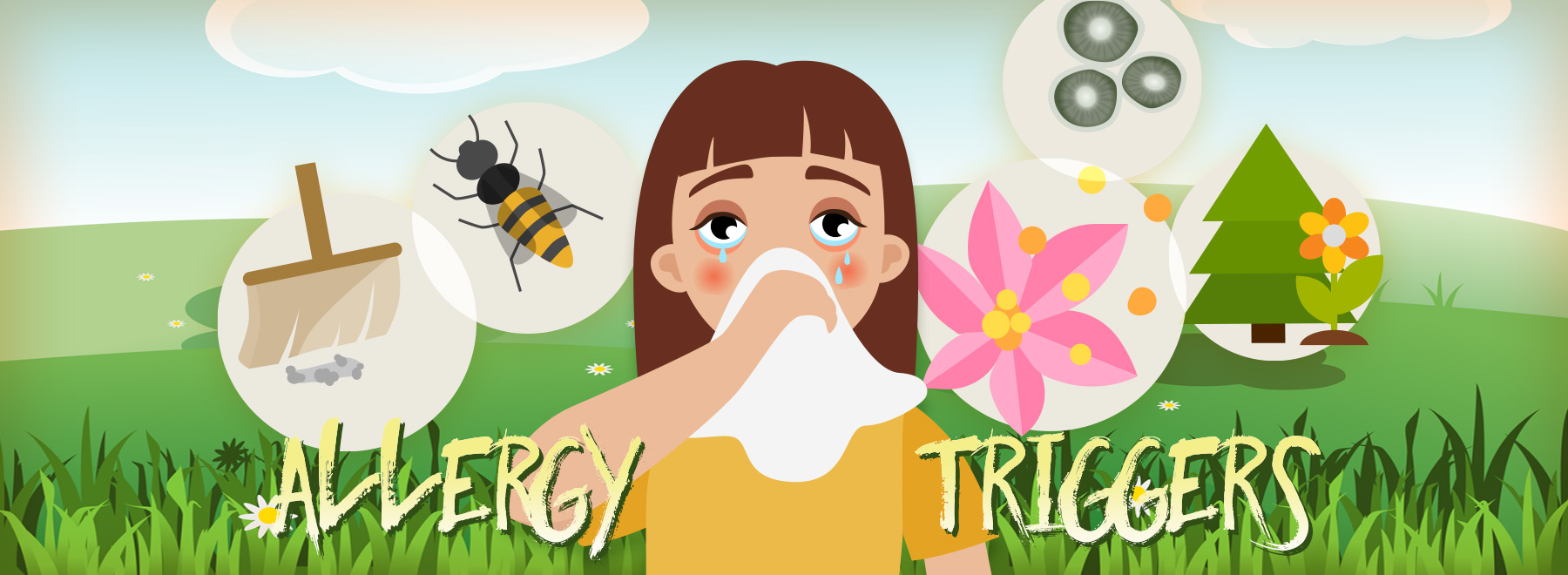Do your child’s symptoms indicate the need for a specialist visit?
If Mississippi children are sniffling and sneezing, they have good reason.

“Spring always brings heavy tree pollen in Mississippi,” said Dr. Anne Yates, a professor of pediatrics at the University of Mississippi Medical Center. “By late February to early March, cars here can be covered with pollen.”
But the pollen that leaves a heavy dusting of yellow on cars isn’t responsible for much of the misery allergies bring, she said.
“That’s mostly pine tree pollen that we see all over cars in the spring,” said Yates, an allergist. “We see it because it is a large-grained pollen, and its size keeps it from bothering us.
“Birch pollen and oak pollen, which are finer, may not be as easily seen, but they do cause allergy symptoms such as sneezing, runny noses and itchy eyes.”
Mississippi’s many varieties of oak trees, along with pecan, birch and others; the state’s early warm spring days; and a humid climate that dust mites love add up to lots of allergy sufferers, children included.
“Jackson is always in the Top 10 cities for the amount of tree pollen,” Yates said.
Every spring, the Asthma and Allergy Foundation of America ranks how challenging U.S. cities are for spring allergy sufferers. Jackson consistently is at or near the top of the list.
“Allergies can be a problem here through spring for tree pollen, and then by mid-August, ragweed is out.”

To parents, allergy symptoms may seem similar to colds and other illnesses, but there are key differences, said Dr. Sara Weisenberger, UMMC associate professor of pediatrics.
“Allergy symptoms include nasal congestion with clear mucus, sneezing and no fever,” said Weisenberger, medical director of the Children’s of Mississippi Complex Care Clinic at the Jackson Medical Mall. “Upper respiratory infections start out similarly but can also have sore throat and fever.”
For most children, allergy symptoms can be safely treated with over-the-counter products. Some children and teenagers don’t get relief from those products or have conditions – such as asthma – that would make allergy symptoms dangerous.
“When a child is missing school frequently or is feeling bad and not getting relief from over-the-counter medications, it may be time to see an allergist,” Yates said.
To determine sensitivity, a specialist may insert a minimal amount of an allergen just below the skin’s surface. After about 15 minutes, the skin is examined for any reactions.
Immunotherapy, a treatment program that can last for three-to-five years, may not be an option for everyone, but for those with severe allergies or problems with asthma, Yates said it is an option worth considering.
Injections of a diluted allergen can help patients build resistance to allergens after some time.
“A patient might start getting injections once a week, but after the first nine to 12 months, it would go to being once a month,” Yates said. “For a child with nasal allergies and a family history of asthma, immunotherapy cuts the risk of developing asthma in half.”
Parents seeking treatment for their children’s allergies should start by visiting their family’s pediatrician or family physician, she said.
![]() For those with less-severe allergies, Yates said antihistamines such as the generic forms of Zyrtec, Claritin and Allegra can be effective. An antihistamine is a drug that blocks the actions of histamine, which is involved in the body’s immune response in an allergic reaction.
For those with less-severe allergies, Yates said antihistamines such as the generic forms of Zyrtec, Claritin and Allegra can be effective. An antihistamine is a drug that blocks the actions of histamine, which is involved in the body’s immune response in an allergic reaction.
![]() Steroid nasal sprays such as Flonase and Nasacort also can help in decreasing inflammation in nasal passages. Decongestant nasal sprays should be limited to a week of use, because they can have a “rebound effect,” becoming less effective after some time, Yates said.
Steroid nasal sprays such as Flonase and Nasacort also can help in decreasing inflammation in nasal passages. Decongestant nasal sprays should be limited to a week of use, because they can have a “rebound effect,” becoming less effective after some time, Yates said.
She said other ways of dodging allergens such as pollen, pet dander, dust mites and mold spores don’t involve medicine at all.
![]() “Stay indoors when pollen is at its height, usually late afternoon,” Yates said. “Mowing grass can stir up grass pollen and mold spores, so children with allergies need to stay inside then.”
“Stay indoors when pollen is at its height, usually late afternoon,” Yates said. “Mowing grass can stir up grass pollen and mold spores, so children with allergies need to stay inside then.”
Other allergy-fighting ideas to consider include using dust mite-proof covers for pillows and mattresses, washing bed linens frequently, vacuuming floors often and using HEPA filters for central air conditioners.
The above article appears in CONSULT, UMMC’s monthly e-newsletter sharing news about cutting-edge clinical and health science education advances and innovative biomedical research at the Medical Center and giving you tips and suggestions on how you and the people you love can live a healthier life. Click here and enter your email address to receive CONSULT free of charge. You may cancel at any time.



